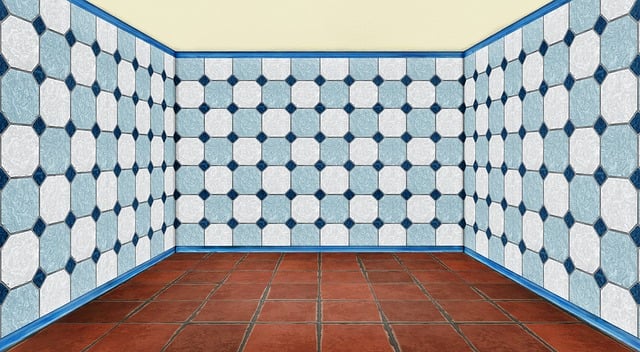Looking for long-lasting, easy-to-maintain bathroom surfaces? This guide is your one-stop resource. We explore diverse options, from popular materials like quartz, granite, and marble to less conventional choices like concrete. Discover the pros and cons of each, including durability, aesthetics, and maintenance requirements. Learn about solid surface, laminate, wood, and concrete countertops, plus get expert tips on choosing the perfect fit for your space while ensuring a return on investment.
- Popular Bathroom Countertop Materials and Their Durability
- – Quartz countertops: pros and cons
- – Granite bathroom countertops: longevity and maintenance
- – Marble bathroom countertops: aesthetics vs. practicality
Popular Bathroom Countertop Materials and Their Durability
When it comes to choosing a durable and low-maintenance bathroom countertop, several materials stand out for their longevity and aesthetic appeal. Among the popular options, quartz countertops have gained significant traction due to their scratch-resistant properties and ability to withstand high temperatures. They are also non-porous, making them easy to clean and maintain, which is ideal for a space that sees frequent use.
Other durable bathroom countertop materials include granite, renowned for its natural beauty and exceptional strength. While it may require more maintenance than quartz, granite’s durability and ability to add a touch of luxury to any bathroom make it a top choice among homeowners. Marble is another classic option, known for its elegant veining and smooth texture. However, marble is slightly softer and more prone to staining, so regular sealing and cleaning are necessary to preserve its appearance. Solid surface countertops, made from materials like acrylic or polyester, offer seamless installations and can be customized to fit various bathroom countertop styles. Conversely, laminate and concrete countertops provide cost-effective alternatives, with concrete offering unique designs and laminates resembling other natural stones without the high price tag.
– Quartz countertops: pros and cons
Quartz countertops have gained significant popularity in recent years as a preferred choice for bathroom remodels due to their durability and low maintenance requirements. This material is a hard, non-porous surface that offers a wide range of colors and patterns, making it an attractive option for various bathroom countertop styles. One of its key advantages is the resistance to scratches, stains, and bacteria, ensuring the countertop remains pristine with minimal effort. This makes quartz an excellent choice for busy households or those seeking low-maintenance options.
However, there are a few considerations. While quartz is scratch-resistant, it isn’t entirely scratch-proof, and deep cuts may require professional repair. Additionally, though it’s non-porous, certain types of staining can still occur if not sealed properly, especially with darker hues. Compared to other natural stones like granite or marble, quartz might be less desirable for those seeking a more authentic, organic look in their bathroom. Yet, its versatility and ease of maintenance make it a solid choice for homeowners looking for long-lasting, low-maintenance bathroom countertop materials.
– Granite bathroom countertops: longevity and maintenance
Granite has long been a popular choice for bathroom countertops due to its exceptional longevity and low maintenance requirements. This natural stone is highly resistant to scratches, stains, and bacteria, making it an ideal surface for high-traffic bathrooms. Granite’s durability ensures that it can withstand everyday use, from splashes of water to the occasional slip of a soap dish, without showing significant signs of wear over time.
When it comes to maintenance, granite requires minimal care. A simple routine of cleaning with a mild detergent and wiping dry is sufficient to keep it looking pristine. Unlike some softer stones, granite does not require sealing regularly, as its natural oils and mineral composition provide protection against moisture and stains. This makes it a practical choice for those seeking an easy-to-maintain yet luxurious bathroom countertop style, whether they prefer the elegant look of granite or want to explore alternatives like quartz, marble, solid surface, laminate, or concrete countertops.
– Marble bathroom countertops: aesthetics vs. practicality
While marble bathroom countertops offer breathtaking aesthetics with their natural veining and elegance, they may not be the most practical choice for every space. Despite being highly resistant to stains and bacteria due to its non-porous nature, marble is a porous material that absorbs liquids and oils, requiring regular sealing and maintenance to prevent water damage and staining. This makes it slightly more high-maintenance compared to other bathroom countertop materials like quartz or granite.
Quartz and granite countertops, for instance, are also popular choices for their durability and low-maintenance requirements. Quartz combines the beauty of natural stone with the benefits of engineered materials, offering a wide range of colors and patterns. Granite, known for its unique grainy texture and rich colors, is a natural stone that requires minimal maintenance but can be more prone to chips and cracks compared to quartz or solid surface countertops like acrylic or laminate, which are more scratch-resistant and easier to repair. Concrete bathroom countertops offer a modern, industrial look and can be highly customizable, but they too require sealing and regular upkeep to prevent moisture damage. Ultimately, the best bathroom countertop material depends on personal preference, budget, and the level of maintenance one is willing to commit to.
When choosing a bathroom countertop material, consider your lifestyle, aesthetics, and budget. Quartz offers durability with low maintenance, granite is renowned for its longevity, and marble adds elegance but requires more care. Alternative options like solid surface, laminate, or wood can also provide unique, long-lasting styles. Ultimately, selecting the right material ensures a functional and visually appealing bathroom that stands the test of time.
